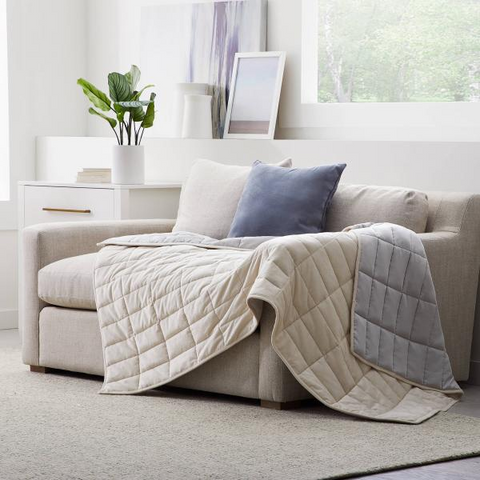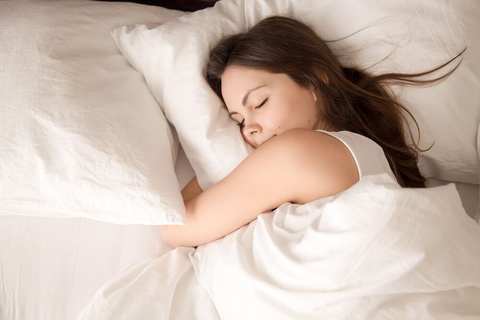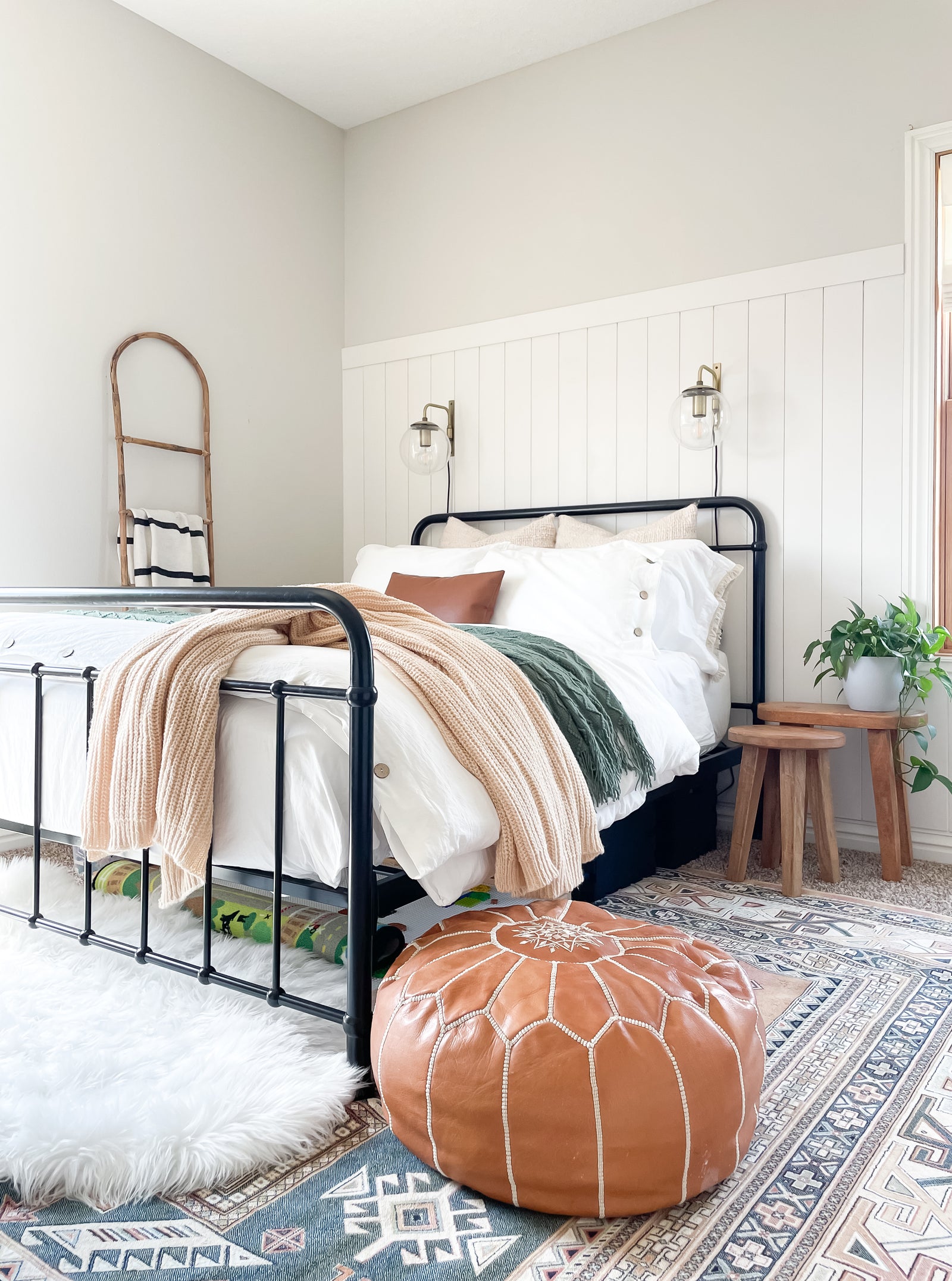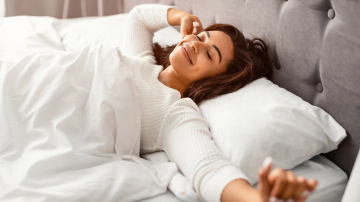Sleep hygiene is important for developing and maintaining healthy sleep habits. It involves creating a sleep environment that is conducive to both physical and mental rest, and following certain habits that ensure a good night's sleep. Developing good sleep hygiene habits is essential for getting the restful sleep your body needs to stay healthy. In this article, we will discuss the basics of sleep hygiene and how to get the most out of your sleep.
What’s the importance of sleep hygiene?
Sleep hygiene is important because it can have a great impact on our physical and mental health. When we don’t get enough sleep, our bodies and minds can suffer. Poor sleep hygiene can lead to problems such as insomnia, fatigue, irritability, poor concentration, and anxiety.
Adopting healthy sleep hygiene habits can have numerous benefits. It can help us to get more restful sleep, which can improve our overall physical and mental health. Proper sleep can help us to better manage stress and improve our mood and cognitive functioning. Good sleep hygiene can also help to reduce the risk of insomnia, which can have a huge impact on our mental health.
Sleep hygiene can also help to improve our productivity during the day. When we get enough sleep, we can better focus on tasks and be more productive. Good sleep hygiene can reduce fatigue, which can lead to better performance on the job.
Finally, sleep hygiene can help us to maintain a healthy weight. Sleep deprivation can lead to an increased appetite, which can contribute to weight gain. Getting enough sleep can help us to better manage our food cravings and make healthy food choices.
How to practice good sleep hygiene?
Optimize your sleep environment
Optimizing your sleep environment is an important factor for achieving good sleep hygiene. This includes having comfortable bedding, a dark, quiet, and cool room, and eliminating any distractions. Having an optimal sleep environment can help to create an atmosphere that is conducive to relaxation and restfulness, making you fall asleep faster and stay asleep longer. Here are some tips for you for reference.
- Keep your bedroom dark and cool -Use blackout curtains and/or an eye mask to block out any light. Set the temperature to a cool 65-72 degrees Fahrenheit. A cool temperature helps to reduce body temperature, which can help to promote relaxation and sleep. When your body temperature is cooler, it signals to your body that it is time to sleep.
- Reduce noise -Use a white noise machine or app to create a calming environment. This can help to block out any distracting noises from outside. In addition, many noise machines also have sound therapy options, such as nature sounds and white noise, that can help to reduce anxiety levels and promote relaxation.
- Get the right mattress - A good mattress should be comfortable, supportive, and provide the right amount of pressure relief. It should also be made from materials that are breathable and able to regulate your temperature. This can help you to sleep more deeply and wake up feeling refreshed.
- Reduce distractions - Keep your bedroom clean and clutter-free. Get rid of any items that could distract you from getting to sleep. Turn off electronics an hour before bed, and keep TVs, phones, and other devices out of the bedroom. The blue light from these devices can interfere with your sleep.
- Get comfortable - Soft bedding and comfortable pajamas can help create a cozy environment that can make it easier to relax and fall asleep. A cooling blanket can help you sleep better by regulating your body temperature. It can help keep you cool during hot summer nights and reduce night sweats. Cooling blankets can also help reduce stress and improve blood circulation, which can lead to a better night's sleep.

Nurture healthy daily habits
Except improving the bedroom to get better sleep, developing healthy habits during the day can also help improve the quality of your sleep at night. Incorporating these positive routines can help to reduce stress, improve energy levels, and promote better sleep.
- Stick to a sleep schedule- Go to bed and wake up at the same time each day, even on weekends. Thishelps to regulate your body clock and can make it easier to fall asleep and stay asleep. It also helps to maintain a regular sleep-wake cycle, which is important for overall health and well-being.
- Exercise regularly- Exercise helps you to fall asleep faster and sleep better. It reduces stress, releases endorphins, and helps regulate your circadian rhythm. Regular exercise can also help improve your mood and overall mental health.
- Reduce caffeine and alcohol intake-Avoid caffeine and alcohol at least six hours before bedtime. Reduce the amount of coffee, tea, soda, and alcoholic beverages consumed. Caffeine is a stimulant and can make it harder to fall asleep, while alcohol can disrupt the quality of sleep. Reducing the intake of these substances can help you to fall asleep faster and sleep better.
- Avoid naps during the day- Napping during the day can make it harder to fall asleep at night, and can lead to disrupted sleep patterns. It is best to only nap for a few minutes during the day, if needed, and to avoid napping for more than 30 minutes. Avoiding naps during the day can help you to sleep better at night by ensuring that your body is ready for nighttime sleep.
- Avoid big meals late at night- Do not eat a large, heavy meal close to bedtime. Eating a large meal late at night can cause indigestion and heartburn, which can make it difficult to fall asleep. Eating a large meal late at night can also lead to weight gain and can disrupt your circadian rhythm, which can make it hard to get a good night's sleep.
- Avoid nicotine- Nicotine is a stimulant, which means it can make it hard to fall asleep and can disrupt sleep during the night. Avoidingany form of nicotine, such as cigarettes, chewing tobacco, and e-cigarettes can help improve sleep quality and duration, leading to better overall health.
Other tips for good sleep hygiene

Get the right amount of sleep each night.
The amount of sleep you need depends on your age and lifestyle. Generally, adults need 7-9 hours of sleep each night. It is important to get enough sleep so that your body can properly rest and recharge.
Reduce stress and anxiety.
Stress and anxiety can interfere with your ability to fall asleep and stay asleep. To reduce stress and anxiety, try relaxation techniques such as deep breathing, progressive muscle relaxation, and mindfulness meditation. You can also use cognitive behavioral therapy to challenge any negative thought patterns that may be keeping you up at night.
Creating a relaxing bedtime routine
Establish a consistent bedtime. Choose a time that’s early enough for you to get enough sleep, and stick with it. Make time for winding down. Give yourself at least an hour before bedtime to unwind and relax. Take a warm bath, read a book, do some light stretching, or listen to calming music. If you’re having trouble sleeping because of worries, take a few minutes to write them down. This can help to clear your mind and make it easier to relax.
Use your bedroom only for sleep
This means that you should only use your bedroom for sleeping and not for other activities such as watching TV, doing work, or socializing. This is important because it teaches your body and mind to associate your bedroom with relaxation and rest, which will help you to sleep better.
Conclusion
By following the tips above, you can develop good sleep hygiene habits and get the restful sleep your body needs. Doing so can help you to feel more alert and productive during the day and reduce your risk of developing physical and mental health issues.
But it should be noted that if you are having severe sleeping problems, it is important to speak with doctor to determine the underlying cause and develop an appropriate treatment plan. Sleep hygiene can be an important part of a comprehensive treatment plan, but it should not be used as a replacement for medical advice and care.
In addition, sleep hygiene is not the same for everyone. Everyone has individual needs and preferences when it comes to sleep. What works for one person may not work for another. It is important to experiment and find what works best for you. Creating a personalized sleep routine that works for you can increase the quality of your sleep and allow you to get the restful sleep you need to maintain your physical and mental health.


